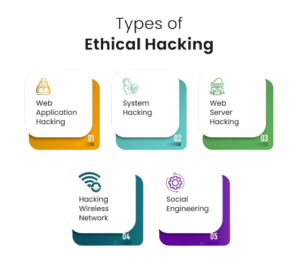Understanding Ethical Hacking Courses

With the growing demand for cybersecurity professionals, there has been a surge in the popularity of ethical hacking courses. These courses provide individuals with the knowledge and skills needed to pursue a career in cybersecurity.
Why Take an Ethical Hacking Course?

Ethical hacking courses offer a structured learning path that covers various aspects of cybersecurity, including network security, web application security, cryptography, and more. By enrolling in a course, individuals can gain hands-on experience with industry-standard tools and techniques used by ethical hackers.
Types of Ethical Hacking Courses

Ethical hacking courses come in different formats, including online courses, bootcamps, and degree programs. Depending on their preferences and career goals, students can choose the option that best suits their needs and schedule.
Benefits of Ethical Hacking Courses

Enrolling in an ethical hacking course offers numerous benefits, both personally and professionally.
Skill Development

Ethical hacking courses provide students with practical skills that are highly sought after in the cybersecurity industry. From penetration testing to vulnerability assessment, students learn how to identify and mitigate security risks effectively.
Career Opportunities

Completing an ethical hacking course opens up a wide range of career opportunities in cybersecurity. Graduates can pursue roles such as penetration tester, security analyst, security consultant, and more, with lucrative salary prospects and job stability.
How to Choose the Right Ethical Hacking Course
With so many options available, choosing the right ethical hacking course can be daunting. Here are some factors to consider when making your decision:
Accreditation and Recognition
Look for courses that are accredited by reputable organizations and recognized by industry leaders. Accreditation ensures that the course meets high standards of quality and relevance.
Curriculum and Course Content
Review the curriculum and course content to ensure that it covers all essential topics related to ethical hacking. Look for courses that offer a comprehensive learning experience with a focus on practical skills and real-world scenarios.
Hands-on Training and Practical Experience
Hands-on training is essential for mastering the techniques and tools used in ethical hacking. Choose courses that provide ample opportunities for practical experience through labs, simulations, and real-world projects.
Top Ethical Hacking Courses in the Market

There are many ethical hacking courses available in the market, but some stand out for their quality and reputation.
Course Reviews and Ratings
Before enrolling in a course, read reviews and ratings from past students to get an idea of their experiences and outcomes. Look for courses with positive feedback and high ratings for content, instructors, and support.
Cost and Duration
Consider the cost and duration of the course relative to your budget and schedule. While some courses may be more expensive or time-consuming, they may offer greater value in terms of content and outcomes.
Career Path after Completing an Ethical Hacking Course
After completing an ethical hacking course, graduates can embark on a rewarding career path in cybersecurity.
Job Roles and Responsibilities
Ethical hacking graduates can pursue various roles in cybersecurity, including:
- Penetration Tester: Identifying and exploiting vulnerabilities in systems and networks.
- Security Analyst: Analyzing security threats and implementing protective measures.
- Security Consultant: Advising organizations on cybersecurity best practices and risk management strategies.
Salary Expectations
The salary for ethical hacking professionals varies depending on factors such as experience, location, and employer. According to industry reports, entry-level ethical hackers can earn an average salary of $70,000 to $90,000 per year, with senior-level professionals earning upwards of $120,000 per year.
Conclusion
Ethical hacking plays a critical role in protecting organizations from cyber threats and attacks. By enrolling in an ethical hacking course, individuals can gain the knowledge and skills needed to pursue a successful career in cybersecurity. With the right training and expertise, ethical hackers can make a significant impact in safeguarding digital assets and maintaining the integrity of the online world.

